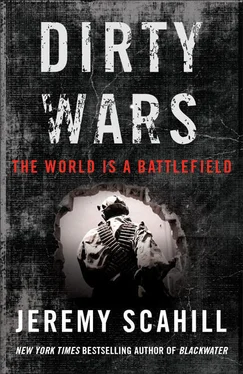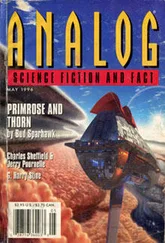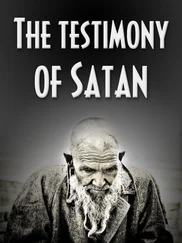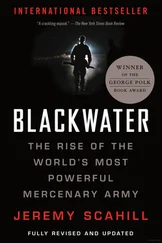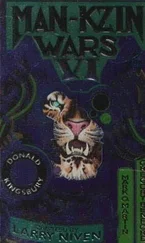In 1986, McChrystal became the commander of the 3rd Battalion 75th Ranger Regiment and, by all accounts, revolutionized the training regime for Rangers, modernizing the technology available to its forces and increasing the tempo of physical training and for night operations. McChrystal’s first known work with a JSOC team was in the lead-up to the 1991 Gulf War, when he served as the army special operations action officer for Operations Desert Shield and Desert Storm. While McChrystal was deployed to the Gulf to help coordinate special operations, he would spend the war in Saudi Arabia and at Fort Bragg. At the time McChrystal was entering the world of dark ops, he acknowledged, “I’ve never shot anyone.” Instead, he would focus on the planning and execution of missions, developing leadership skills and moving up through the Special Ops ranks.
By the late 1990s, McChrystal had become the commander of the Rangers. Dalton Fury, who led a Delta Force team hunting bin Laden in Afghanistan, served as a staff officer under McChrystal in the Rangers before moving over to Delta. “My Ranger peers and I had a unique opportunity to see the good and the bad in [McChrystal]. I think if McChrystal were wounded on the battlefield, he would bleed red, black, and white—the official colors of the 75th Ranger Regiment. He is 110% US Army Ranger,” Fury recalled. “Even with a bum back and likely deteriorating knees after a career of road marching and jumping out of planes he doesn’t recognize the human pause button.” Fury noted that as a Ranger, “McChrystal was considered a Tier II subordinate commander under the Joint Special Operations functioning command structure. The highest level, Tier I, was reserved exclusively for Delta Force and Seal Team 6. This always seemed to bother McChrystal. His nature isn’t to be second fiddle to anyone, nor for his Rangers to be considered second-class citizens to the Tier 1 Special Mission Units.”
Indeed, McChrystal fought for years to advance the position of the US Army Rangers in the Special Ops machinery, refusing to view them as a “farm team” for Delta Force. “The Rangers were, and still are, just as skilled in their Mission Essential Tasks as are the Tier I units in theirs,” recalled a former Ranger who served under McChrystal. “He believed that losing quality officers and noncommissioned officers to what many considered the true tip of the spear outfits—those granted the most funding, most authority, and given the premier targets—hurt the Regiment.” As Fury explained, in McChrystal’s eyes, “the Rangers were just as skilled in their primary mission of Airfield Seizures and Raids as Delta was in land based Hostage Rescue or the SEALs were in assaulting a ship underway.”
Fury recalled a conversation he had had with then-Colonel McChrystal in which they discussed the failed Eagle Claw operation in Iran, the Delta Force hostage rescue attempt in 1980 that remained a stain on the Special Ops community. “It was an interesting and enlightening conversation. The essence of the discussion centered on COL McChrystal’s reasoning that Beckwith should have continued the mission with fewer operators and lift helicopters. Even though the risk would have increased significantly, COL McChrystal felt the embarrassment in the eyes of the world of failing to try was exponentially more devastating to our nation’s reputation than executing a high risk mission that might have even an outside chance of success. McChrystal believed the American people would never accept such a decision like that again.”
After establishing himself as an iconic figure in the Rangers, McChrystal burnished his credentials with stints at Harvard and the Council on Foreign Relations in New York. In 1998 Dick Cheney, who then chaired the Military Fellowship Selection Board at the CFR, recommended McChrystal for the fellowship to “broaden” his “understanding of foreign relations.” At the CFR, McChrystal wrote an in-depth paper debating the merits of humanitarian intervention. In the paper, written before 9/11, McChrystal asserted, “It is military reality that the nation is incapable of unlimited action around the world. It is political reality that unconstrained or poorly justified US military intervention would be neither supported nor accepted, either by Congress or by other nations,” adding, “Our actions, particularly interventions, can upset regions, nations, cultures, economies, and peoples, however virtuous our purpose. We must ensure that the cure we offer through intervention is not worse than the disease.” McChrystal continued, “We must not put at risk our military capability to perform core missions crucial to national defense…. The cost of losing or significantly degrading the power of the United States,” he argued, “is a price the world can ill afford.” Ironically, McChrystal, who considered himself a political liberal, would ultimately owe his rise to fame to men who did everything he warned against in his CFR paper.
When the 9/11 attacks occurred, McChrystal was the chief of staff of the 18th Airborne. He was soon deployed to Afghanistan to help establish Combined Joint Task Force 180, which would become the forward headquarters for Operation Enduring Freedom. In the early days of CJTF 180, McChrystal ran a “hybrid organization” made up of Special Operations Forces, as well as conventional and Special Forces units. Based at Bagram Air Base, the task force had a mission to coordinate the full-spectrum war effort, directing operations targeting al Qaeda and Taliban leadership, in addition to other counterterrorism operations. The task force would take the lead in detention operations and interrogating prisoners for “actionable intelligence” in Afghanistan. CJTF 180 commanded many of the units that initiated the widespread use of night raids on suspected houses of al Qaeda or Taliban figures. These raids were considered a “blueprint for the war against terrorism” that would later be replicated elsewhere.
In July 2002, McChrystal was recalled to Washington, DC, for a promotion. Five months after he left Afghanistan, CJTF 180 became embroiled in a prisoner abuse scandal when it was revealed that in December 2002, two detainees in the task force’s custody had died from blunt trauma, exposing the “enhanced interrogation techniques” being used there. Whether it was the task force that was responsible or the Special Mission Unit that was using the task force’s facilities to conduct interrogations was never fully resolved. Two Military Police officers were tried in connection with the deaths. Although McChrystal’s time in Afghanistan was brief, it was there that he strengthened his close working relationship with a legend of the military intelligence world, Major General Michael T. Flynn.
Flynn, who was McChrystal’s deputy at the 18th Airborne, deployed with him to Kabul, where he served as director of intelligence for CJTF 180. Known in his early years as a hard-partying surfer, Flynn was commissioned in 1981 as an army second lieutenant and became an intelligence officer, doing multiple tours at Fort Bragg. He participated in the 1983 invasion of Grenada and the invasion of Haiti in the early 1990s. He spent his career working on sensitive military intelligence programs and building up systems for developing intelligence collection in “denied” areas. As McChrystal rose, Flynn rose with him. When McChrystal returned to Washington, Flynn returned to command the 111th Military Intelligence Brigade, whose members would, among other activities, deploy, “equipped with low density systems” such as unmanned aerial vehicles “to contingency operations throughout the world.” This period marked a dramatic uptick in the use of a variety of drones that would later become central weapons in Washington’s wars. Flynn would be on the knife’s edge of the intelligence technology that would be at the center of the mounting, global kill/capture campaign.
Читать дальше
